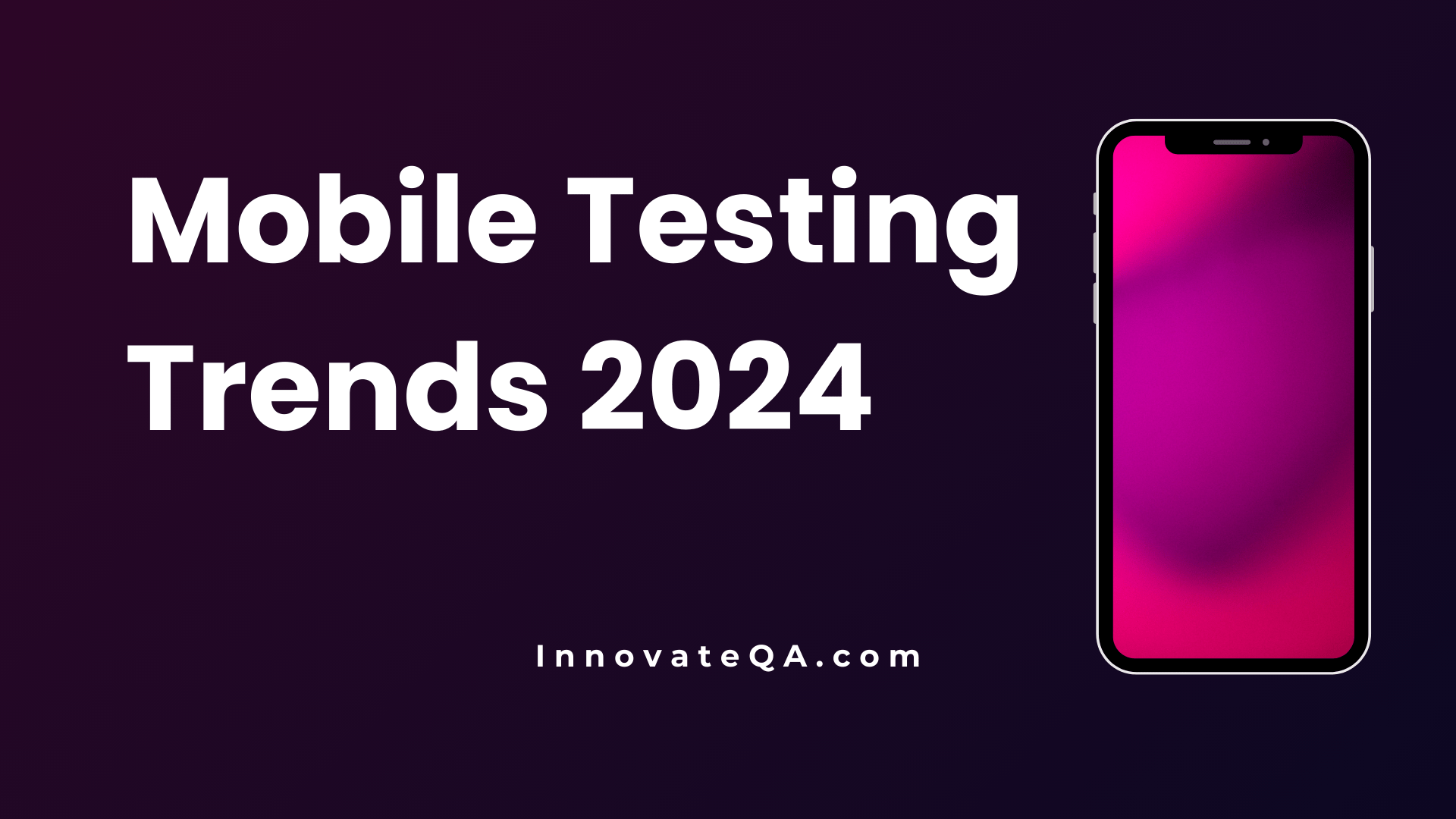Table of Contents
ToggleIntroduction
Mobile testing trends are important for several reasons, reflecting the dynamic nature of the mobile technology landscape and the evolving expectations of users.
By staying informed about mobile testing trends, organizations can build robust and reliable mobile applications, enhance user satisfaction, and maintain a competitive edge in the dynamic mobile landscape.
Mobile Test Automation Frameworks
IoT and Wearables Testing
The role of mobile testing in the context of IoT (Internet of Things) and wearables is crucial, as these technologies heavily rely on seamless integration with mobile devices and applications
Mobile testing plays a vital role in ensuring the successful integration, functionality, security, and user experience of IoT devices and wearables when connected to mobile applications. As these technologies continue to evolve, thorough and effective testing practices become even more critical to deliver reliable and user-friendly solutions.
Mobile Test Clouds
Mobile test clouds, also known as mobile testing clouds or device clouds, are platforms that provide a scalable and cloud-based infrastructure for testing mobile applications across a wide range of devices and operating systems. These platforms offer a virtualized environment where developers and testers can execute tests on various mobile devices without the need to physically possess each device.
Popular mobile test cloud providers include Sauce Labs, BrowserStack, AWS Device Farm, Firebase Test Lab (now part of Google Cloud), and Microsoft App Center, among others. These platforms continue to evolve, incorporating new features and device additions to meet the growing needs of mobile application developers and testers.
Mobile User Experience (UX) Testing
Mobile User Experience (UX) testing is a critical process in ensuring that mobile applications provide a positive and seamless interaction for users. UX testing focuses on evaluating how users interact with the mobile app, identifying any usability issues, and ensuring that the overall experience meets or exceeds user expectations.
Mobile UX testing is an ongoing process that should be integrated into the development lifecycle. Regular testing and user feedback help ensure that the mobile app continues to meet the evolving needs and expectations of its users.
Security Testing for Mobile Apps
Security testing for mobile apps is a crucial aspect of the overall mobile application development lifecycle. Mobile devices store sensitive information, and mobile apps often have access to personal data, making them potential targets for security threats.
Regularly incorporating security testing into the development process and staying informed about the latest security threats and best practices is essential for maintaining a secure mobile app. Security is an ongoing concern, and proactive measures can help prevent potential security breaches and protect user data.
Augmented Reality (AR) and Virtual Reality (VR) Testing for Mobile
Mobile Augmented Reality (AR) and Virtual Reality (VR) testing are critical aspects of ensuring a seamless and immersive user experience in applications that leverage these technologies.
Utilize both manual and automated testing approaches, and consider leveraging specialized tools designed for testing AR and VR applications. Additionally, collaborating closely with developers and incorporating user feedback can contribute to the overall success of mobile AR and VR testing efforts.
Mobile Performance Testing
Mobile performance testing is a critical aspect of ensuring that mobile applications deliver a smooth and responsive user experience under varying conditions. Mobile devices have diverse hardware capabilities, network conditions, and operating environments, making performance testing essential to identify and address potential issues.
Regular performance testing is essential to accommodate changes in user behavior, device technology, and network conditions over time.
Geolocation Testing
Geolocation testing for mobile applications is essential, especially for apps that rely on location-based services. This type of testing ensures that the app accurately determines and utilizes the device’s geographical location.
By conducting thorough geolocation testing, developers can ensure that the mobile app accurately leverages location-based services, providing users with a reliable and seamless experience. Testing in various scenarios and environments helps identify and address potential issues related to geolocation accuracy and performance.
Mobile Games Testing
Mobile games testing is a specialized aspect of mobile application testing that focuses on ensuring the functionality, performance, and overall quality of mobile games. Testing mobile games is essential to provide players with a seamless and enjoyable gaming experience.
Mobile games testing requires a combination of functional, performance, and usability testing to deliver a high-quality gaming experience. Testing should cover a range of devices, operating systems, and scenarios to identify and address potential issues that players may encounter. Regular testing and updates are crucial to maintaining the game’s quality and keeping players engaged.
Conclusion
As mobile technology continues to evolve, the future of mobile testing will be characterized by adaptability, integration with emerging technologies, and an emphasis on delivering high-quality user experiences. Testing practices will need to evolve to address the unique challenges posed by new devices, connectivity options, and user expectations.

